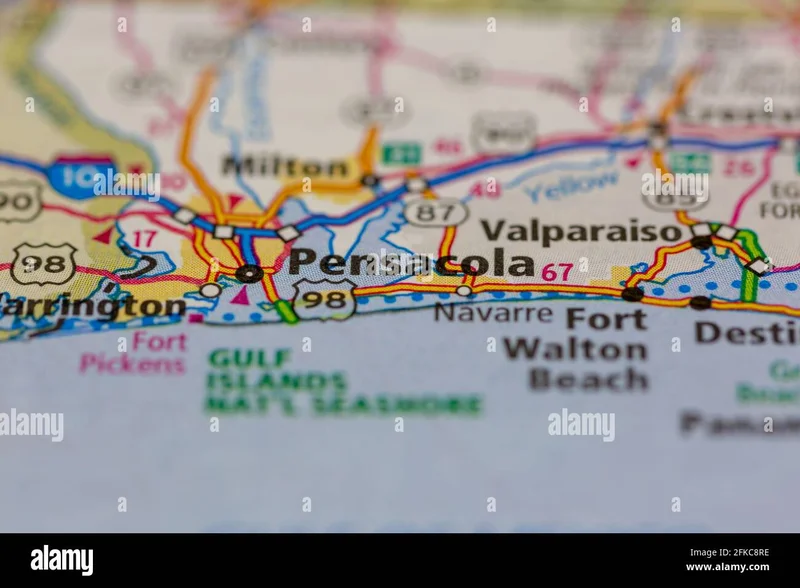I saw two headlines cross my desk this week that, on the surface, couldn’t be more different. One was from Condé Nast Traveler, which noted that St. Augustine, Pensacola both among best small cities in U.S. Think cobblestone streets, historic forts, and sun-drenched beaches. The other was a Forbes list titled These are the best employers in Florida, new study reveals, a spreadsheet of corporate giants like Navy Federal, Google, and Capital One.
Most people would see these two stories, nod, and move on. One is for vacation planning, the other is for job hunting. But when I saw them side-by-side, I honestly just sat back in my chair, speechless. Because taken together, these two dry, data-driven reports aren’t just about Florida. They are a quiet, accidental blueprint for the biggest shift in work and life in a century.
This isn’t about tourism and corporate rankings. This is about the death of the geographic compromise. For generations, we’ve been forced into a false choice: you could have the high-paying, career-defining job in a major hub like New York or San Francisco, or you could have the idyllic lifestyle in a smaller, more affordable town, but you couldn't have both. You had to choose your track. It was like the old railroad system; your life was tethered to where the company decided to lay the steel. If you wanted to work for the best, you had to move to the station.
What we're seeing now is the complete demolition of that railroad. This is the era of the distributed workforce—or, to put it simply, the freedom to work from where you want to live, not live where you have to work. And these Florida lists are the first real, tangible proof of this new map being drawn.
Let’s look closer, because this is where it gets fascinating. Dig into that Forbes list of the “best employers in Florida.” The number one spot? Navy Federal Credit Union, headquartered in Vienna, Virginia. Number three? Capital One, also from Virginia. Number five? Google, from Mountain View, California. You have to scroll way down the list to find Florida-born staples like Publix and Darden.

Do you see it? The most desirable employers operating within Florida aren’t even from Florida. They are the tech, finance, and aerospace titans that have mastered the art of remote and hybrid work. They’ve built cultures and infrastructures that don’t depend on a single, monolithic headquarters. Their talent isn't geographically chained to a campus in Silicon Valley or a skyscraper in Manhattan.
Now, hold that thought and look back at the Condé Nast list. St. Augustine is ranked fourth in the entire country. A city praised for its “treasure trove of historical features,” its basilicas, its forts, its connection to a centuries-old legend of the fountain of youth. Pensacola, ranked tenth, is lauded for its stunning beaches and the powerful history at the Chappie James Museum. These aren’t just vacation spots; they are places with deep cultural roots, a tangible sense of community, and a quality of life that you just can't find in a sprawling, concrete metropolis.
This isn't a coincidence. It's cause and effect. The very people working for Google, Microsoft, and Capital One are now empowered to choose their environment, and they are choosing places like St. Augustine and Pensacola. The freedom offered by the world’s best companies is directly fueling the rise of America’s best small cities—it’s a feedback loop that’s creating entirely new centers of gravity for talent, innovation, and culture.
The implications of this are just staggering—it means the old power dynamics of mega-cities are starting to erode and we're seeing the rise of a poly-centric nation where innovation and opportunity can blossom anywhere there's a good internet connection and a great cup of coffee. What happens when a Google engineer, a Capital One data scientist, and a NASA contractor all live on the same street in a historic Florida town? What new ideas, businesses, and community projects are born from that collision?
Of course, this great migration comes with immense responsibility. We have to ask the hard questions. How do we ensure this influx of high-earning remote workers doesn't price out the local teachers, artists, and service workers who built these communities in the first place? How do we invest in infrastructure to support this growth without paving over the very charm that drew people there? This isn't just a technological shift; it's a societal one, and we must manage it with intention and empathy.
For decades, we designed our lives around our jobs. The commute, the zip code, the school district—all of it was a downstream consequence of a decision made in a boardroom hundreds of miles away. What these two simple lists from Florida show us is that the current is finally reversing. We are witnessing the beginning of a world where companies must come to the talent, wherever it chooses to be. This is more than just a trend; it's a fundamental re-wiring of our social and economic landscape, a shift as profound as the invention of the automobile or the internet itself. We're not just changing where we work; we're changing how we define a life well-lived.